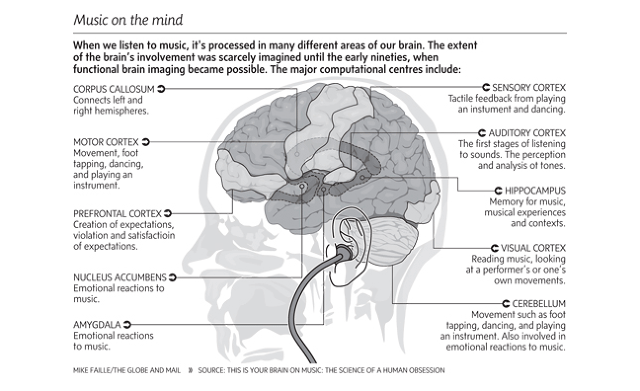How can I get God to give me what I want? That’s often at the root of our interest in prayer. If we’re honest, that’s the question we want answered when we read books on prayer, listen to a message or podcast on prayer, or talk to people known as prayer warriors.
Recently there have been two high-profile stories involving prayer in the evangelical world. In December 2019, the two-year-old daughter of a worship leader at Bethel Church in Redding, California, suddenly died. When her body was taken to the morgue, the little girl’s mother at the church known for signs and wonders and strange phenomena such as “gold dust” and feathers floating down from the ceiling posted a message on social media, asking believers to pray that little Olive would rise from the dead:
“We are asking for bold, unified prayers from the global church to stand with us in belief that He will raise this little girl back to life. Her time here is not done, and it is our time to believe boldly, and with confidence wield what King Jesus paid for. It’s time for her to come to life.”
The hashtag #wakeupolive swept through the internet, with many people declaring a resurrection for Olive in Jesus’ name. There was a lot of the name-it-and-claim-it theology driving well-meaning people to declare what they were in reality demanding that God do. Some were saying that God’s name and character would be in question if He didn’t come through.
When some people expressed their concern that God might not do what people “declared” that He would—when they stated the truth that God is sovereign and He does what is best—they were shamed for their unbelief. As the wise ladies of Mama Bear Apologetics analyzed this criticism, “If you doubt that He will, that is equivalent to doubting that He can.”{1}
A LOT of people jumped on the #wakeupolive bandwagon, trusting that the strength and passion of their declarations would be sufficient to make God do what they wanted, as if His answer to prayer were contingent on how much emotional energy they could summon. When this happens, people are putting their faith in faith rather than God, who knows the whole big picture and always does the best, right thing. This is how they are trying to get God to do what they want.
This name-it-and-claim-it faith also warns against doubt, assuring people that if God doesn’t do what they are praying for, it’s because they didn’t have enough faith. Leaving any sort of open door for God to do His will independent of what is being asked is seen as doubting. When our premature baby died after nine days of faith-filled prayers, and many declarations of health and strength for her, we were told that we didn’t have enough faith. It was our fault.
When a lady in our Sunday School class battled cancer, she was so determined not to let doubt poison her declarations of healing that she stubbornly refused to discuss her funeral or how her house (and her many cats) should be disposed of if she didn’t get her miracle healing. It was a very sad thing to have to make these decisions for her when she died. She didn’t get what she wanted from God. In reality, she got something much better, but she would not allow for that possibility.
Little Olive did not rise from the dead.
People did not get what they were praying for, what they were declaring God would do.
That happens. A lot.
There was another request for prayer from believers when Lois Evans, the wife of pastor Dr. Tony Evans in Dallas, the mother of several amazing children including Priscilla Shirer, got to the end of her battle with cancer. Dr. Evans wrote,
Yet, even though chemotherapy and radiation are no longer options, we still have total confidence in our God’s ability to supernaturally intervene and do what man is unable to do. Our prayers are full of faith, hope and expectancy. We would appreciate you praying with that same spirit. . . .
We know God is still on the throne, and our faith is in Him and in His Word, and His love for us has not wavered in the least.
There is a huge difference between making a declaration, “standing in belief” for what people wanted, and this humble request for supernatural intervention that is still full of trust in God’s sovereignty and goodness.
God chose to bring Lois home, and her family responded with a stunning beauty in their trust in a good God even as they deeply grieved. Her memorial service was phenomenal.
In his eulogy, her son Jonathan said in this scripture-studded message:
I was wrestling with God because I said, “If we have victory in Your name, didn’t You hear us when we were praying? Didn’t You see the cancer? … Didn’t You hear us? Why didn’t You do what we were asking of You?
“Because your Word says, ‘If we abide in You and Your Word abides in us we can ask whatever we will and it will be given to us’? Your Word tells us that if we ask according to Your will that You hear us.
“Your Word is telling us in Mark 11 that ‘if you pray believing you will receive.’ ‘To be anxious for nothing, but through prayer and supplication make your request known.’ Where are You?”
I was wrestling with God the last few days because “this was a great opportunity that we can tangibly see Your glory.
“Everybody was praying, not only in Dallas, but around the country and around the world. People were watching. Where are You? This was an opportunity to see Your glory.”
And as I was wrestling with God, He answered. And He said, “Number 1, You don’t understand the nature of My victory because just because I didn’t answer your prayer your way doesn’t mean that I haven’t already answered your prayer anyway.
“Because victory was already given to your mom. You don’t understand because of the victory that I have given you.
“There was always only two answers to your prayers—either she was going to be healed or she was going to be healed.
“Either she was going to live or she was going to live. Either she was going to be with family or she was going to be with family.
“Either she was going to be well taken care of or she was going to be well taken care of. Victory belongs to Me because of what I’ve already done for you.
“The two answers to your prayer are yes and yes. Because victory belongs to Jesus.”
Then He said to me, “You need to understand that I am God and I am sovereign. And My game plan is bigger than any one player on the field.
“So you need to trust in the Lord with all your heart and do not lean on you, but lean on Me because I have the ability to make this crooked situation straight. I am the sovereign God. That’s why they say that I am that I am.
“As higher as the heavens are above the earth are My ways from your ways and My thoughts from your thoughts. We don’t think the same. P.S. Don’t tell me how to get my glory.”
And finally He just let me know, ‘I appreciate your prayers and your trust in Me, but the way that you are coming to Me now is a sense of entitlement like I owe you something.
“You can’t tell me what I’m supposed to do. I’m God. You can’t say, ‘Well it should’ve been this way.’
“You can’t tell me, ‘Well as much as she served you, You should’ve done it this way. As much as my dad has done in ministry and as much as we’ve done in ministry and how faithful this family is, it should be this way.’
“Don’t come to me with that entitlement. Because without My victory and what I have done all of You would be on the doorsteps of hell.
“I don’t owe you anything. You owe me everything.
“And I know that it was hard for you to sit there and watch your mom die, but don’t let that belittle the fact of how hard it was for Me to watch my Son die so she could live. So back up off Me with your entitlement.
“There were always two answers to your question—yes and yes—because of My grace being sufficient.”
Thank You Lord.{2}
The prayers of many people in both situations were not answered with the “yes” that so many wanted, but they were answered with the “something better” that God can know because He is omniscient (all-knowing), omnipotent (all-powerful), and sovereign (in control)
How can we make God answer our prayers the way we want?
We can’t.
We don’t have that kind of power or influence.
It’s the wrong way to look at prayer.
The right way is always to follow the way Jesus modeled for us the night before He died, in the Garden of Gethsemane. He asked for what He wanted—so passionately that He literally sweat blood about it—and then relinquished His request into His Father’s loving hand: “Not My will, but Thine be done.”
As wise people have observed, if we could see everything God sees, and know everything God knows, we would ask Him for exactly what He allows and what He does.
It’s about trust in a good God, not declarations about us.
1. mamabearapologetics.com/mba042-wake-up-olive/ Accessed January 21, 2020.
2. factsandtrends.net/2020/01/08/jonathan-evans-delivers-viral-eulogy-of-his-mother-lois-evans/ Accessed January 21, 2020.
This blog post originally appeared at
blogs.bible.org/how-can-i-make-god-answer-my-prayers-my-way/ on January 23, 2020.



 Millions of people have seen the summer blockbuster movie War Room, many of them challenged to be more intentional about prayer. Some have even cleaned out a closet or a corner to make their own War Room.
Millions of people have seen the summer blockbuster movie War Room, many of them challenged to be more intentional about prayer. Some have even cleaned out a closet or a corner to make their own War Room.